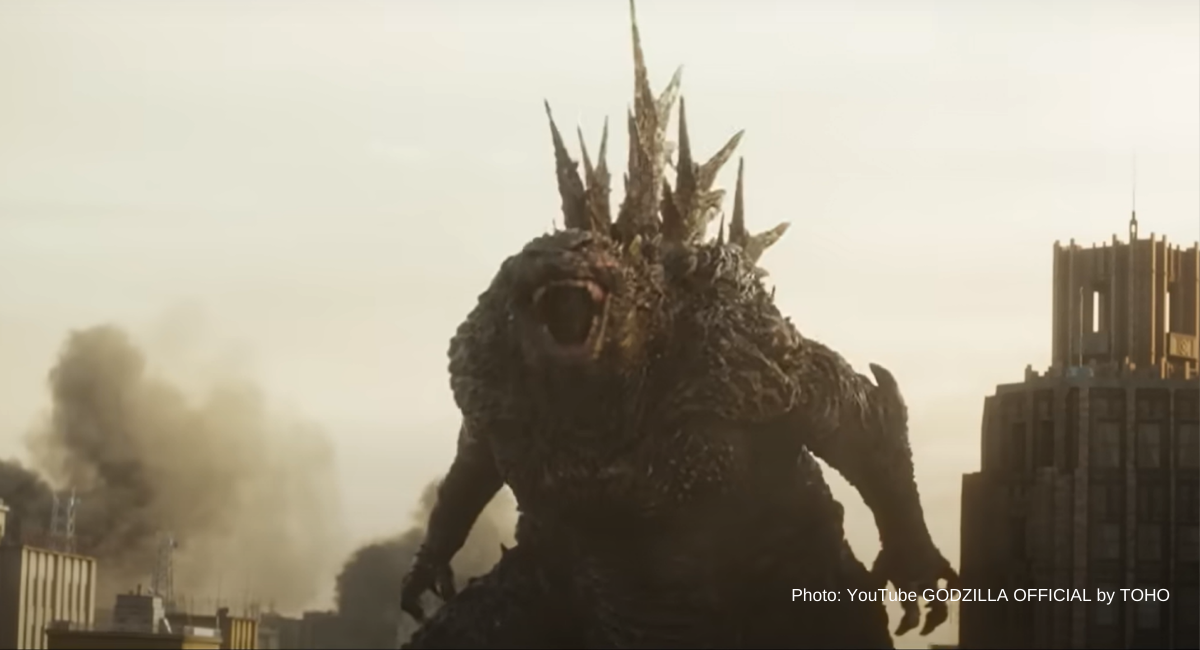Growing up, Godzilla cinema was frequent in my household. The unique theme music and iconic roar of the Japanese kaiju to this day brings a shiver down my spine when I hear them.
After several attempts to reboot the King of the Monsters in Japan ended either with poor box office results or poor fan reaction, director Takashi Yamazaki released “Godzilla Minus One” in 2023.
It was a surprise at the box office with both critics and fans celebrating the return of Godzilla to the big screen in a way that honors the story’s roots. What was more surprising was the pro-life message that, either by design or coincidence, made its way into the plot of the movie.
WARNING: Spoilers below!
Japanese actor Ryunosuke Kamiki portrays World War II kamikaze pilot Kōichi Shikishima, a man who encounters Godzilla when he claims his plane malfunctions and lands at a repair station. He freezes instead of saving the personnel on the island where his plane is being repaired. Branded a coward, he returns to Tokyo in disgrace.
He finds his parents have died during the war and meets Noriko Ōishi, portrayed by Minami Hamabe. She is a petty thief who nearly gets caught while holding a baby named Akiko. To Shikishima’s surprise, he discovers that the baby is a war orphan and that Ōishi rescued the child, promising the dying mother that she would take care of her.
READ: ‘Big Bang Theory’ star Kaley Cuoco says she was mom-shamed on a recent flight
Shikishima adopts Akiko and allows Ōishi to take refuge in his home while he works to provide for the two of them. He takes on a dangerous job of destroying mines near the coast of Japan, but unbeknownst to him, this is what awakens Godzilla.
Despite taking responsibility for Ōishi and the child, he refuses to marry the young woman or officially adopt the child, chastising her when she calls him “daddy.” His colleagues witness this and berate him, explaining to him that he either needs to make them a family or let them go.
Shikishima’s distance is not due to selfishness, but due to his past, fearing he will let down Ōishi and Akiko. He has flashbacks from seeing Godzilla, and it is revealed that he plans on dying in the event of the kaiju’s return. He begins to soften, however, realizing that his life, despite being broken, is worth living, especially after earning forgiveness from one of the engineers that he let Godzilla harm. It is a cinematic metaphor for the value of life no matter the circumstance.
Typical Hollywood films, such as “Poor Things” or “Call Jane,” celebrate depravity and the culture of death. “Poor Things” focuses on a “childlike” woman who is tempted into all kinds of debauchery by a predator, while “Call Jane” lionizes eugenics and abortion through the eyes of a seemingly loving mother who is hiding a dark side. Not so with “Godzilla Minus One.”
Akiko is a war orphan who was almost discarded, but saved by Ōishi. Shikishima is a broken man labeled a coward for not fulfilling his duty who seeks redemption through his death. However, he learns that life should not be thrown away. It is a display of how life is sacred, no matter the age of the human being.
Themes of family, survival, adoption, and taking responsibility all lead Shikishima to a path of redemption as he helps defeat Godzilla when the monster returns to Japan in the early stages of the Cold War.
Through the eyes of Shikishima and Ōishi, we see how being a family is a clear path to redemption, even withstanding the horrors of a monster. It is a near-perfect analogy about how life, no matter the stage, is sacred and worth fighting for.







